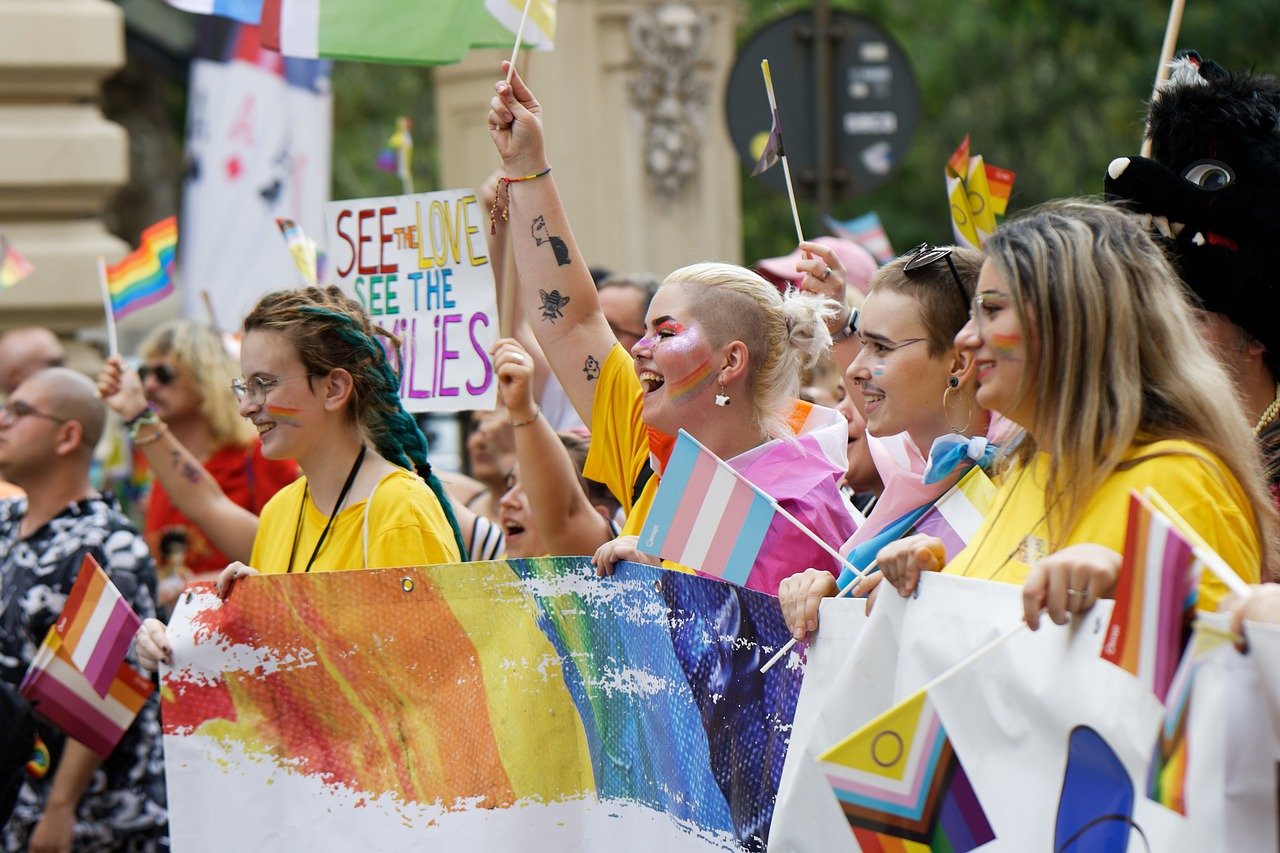Happy LGBTQ+ Pride Month!

When we look at disadvantaged social groups, it is important that we recognise the challenges posed by intersectionality. People who identify – or who others identify – with more than one oppressed characteristic experience social violence, oppression and disadvantage from different groups of people and often find they are rejected by people who might otherwise support them because of another aspect of their identity. Black LGBTQ+ people are a classic example of a group living with daily intersectional violence. There is, sadly, racism on the gay scene and homophobia among many communities, including among people of the global majority (Black, Asian and other non-white people), with transphobia seeming to make its ugly face known almost everywhere at the moment. As well as being denied opportunities for employment and advancement, subject to microaggressions in daily life, threatened with social and often physical violence, and oppressed by the apparatus of the state, from a hostile media to racist and transphobic politicians, it is also harder for these people to find other people who share their experience of life, who get them as people, who know what they have been through. Life as a Black, homosexual woman is different from life as a man, as a white person, and so on. This is part of the reason that LGBTQ+ Pride owes such a debt (often overlooked and forgotten) to Black trans activists, who helped spark the riot that finally forced the conversation about LGBTQ+ human and civil rights onto the mainstream agenda.
Support is also lacking for minority groups in Britain. We only have to look at support and care services to see the glaring lack of people from the global majority, trans people; in many cases, men are also lacking, and for things like counselling, this often matters. People want to be seen and having a therapist who has only book learning to go on to understand the pressures that are causing a person to suffer is a poor substitute for someone who has walked through the same flames themselves. Intersectionality leaves people attacked on all sides and with diminished support.
In response to the shame cast on the identities of the world’s most vulnerable people, LGBTQ+ people responded by hosting protest marches and declaring pride in their identity. This is the origins of LGBTQ+ Pride – and Pride marches.
Be part of the solution
Happily, we can all be part of the solution. Talking about taboo subjects normalises them – from mental health to sexual identity, the best thing to do is to chat about how diverse we all are. If we are truly honest with ourselves, very few of us fit neatly into the social categories that are prescribed for us, as demonstrated by the once fundamental category of ‘race’ now being roundly rejected. I predict that as people feel increasingly safe to get to know themselves, more of the divisions that are assumed to be fundamental and biological determinants of who should belong to the social groups that enjoy the greatest privilege will soften and become much less distinct over time. There is nothing more radical than questioning the assumptions we have been handed down by past eras and looking at life with fresh eyes and asking what do we really see?
Helping you along the path to inclusion
Of course, most people quite naturally find themselves surrounded by people who are very much like themselves. We are attracted to people who we feel are similar to us, people who make us feel comfortable and safe. The only trouble with this is that much of life lies beyond our direct experience, which makes it difficult to empathise. Happily, films, documentaries, novels, and more fun media let us vicariously experience what might be like to be someone other than ourselves. We have put together reading lists that comprise materials that make it quick and easy to find novels, films and more by and about socially disadvantaged groups, from people of the global ethnic majority, LGBTQ+ people, members of the Gypsy, Roma, and Traveller community so it is that much easier for you to expand your horizons from the safety and comfort of your armchair.
The page comprises a series of drop-down menus. Tap/click on the blue heading box to view the subtopics, and then tap on a link to go to the ‘reading list,’ which links to all the resources you might want.




Leave a Comment (note: all comments are moderated)